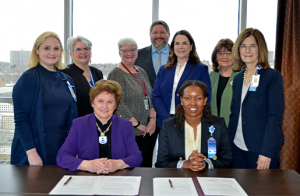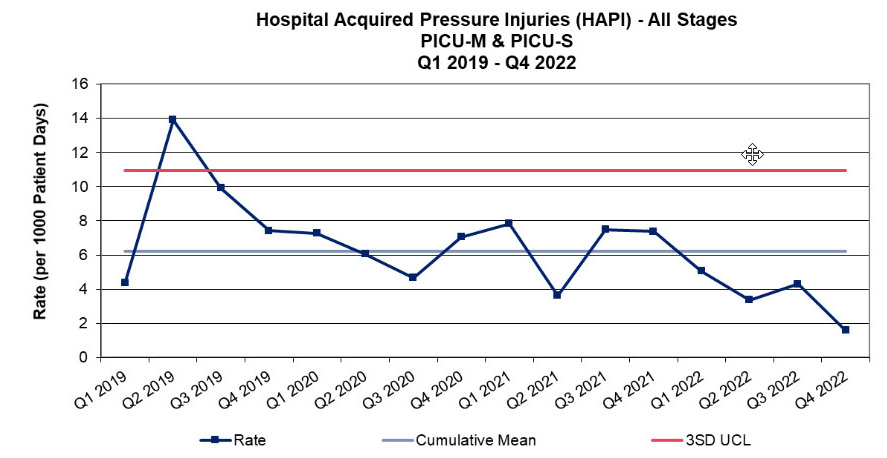“We celebrate this Collaboratory focused on the health of children and their families and look forward to community-creating with Children’s Minnesota the best practices to advance it,” says Connie White Delaney, PhD, RN, FAAN, FACMI, FNAP, dean of the School of Nursing. “This is about honoring our future that is held with children, and this partnership will have a profound impact on all of the School of Nursing’s Collaboratories.”
“As the kid experts, Children’s Minnesota is committed to improving children’s health by providing the highest-quality, family-centered care, advanced through research and education. This Collaboratory is very exciting as it strengthens our partnership with the School of Nursing by co-creating evidence-based pediatric nursing practice through research,” says Caroline Njau, MBA, BSN, RN, NEA-BC, senior vice president of patient care services and chief nursing officer (CNO) at Children’s Minnesota.
Among the Collaboratory’s initial areas of focus are fostering innovative educational experiences in both organizations, supporting the health of children and their families through research and evidence-based practice, addressing nursing workforce trends, and finding collaborative ways to support a smooth transition of graduates into practice.

